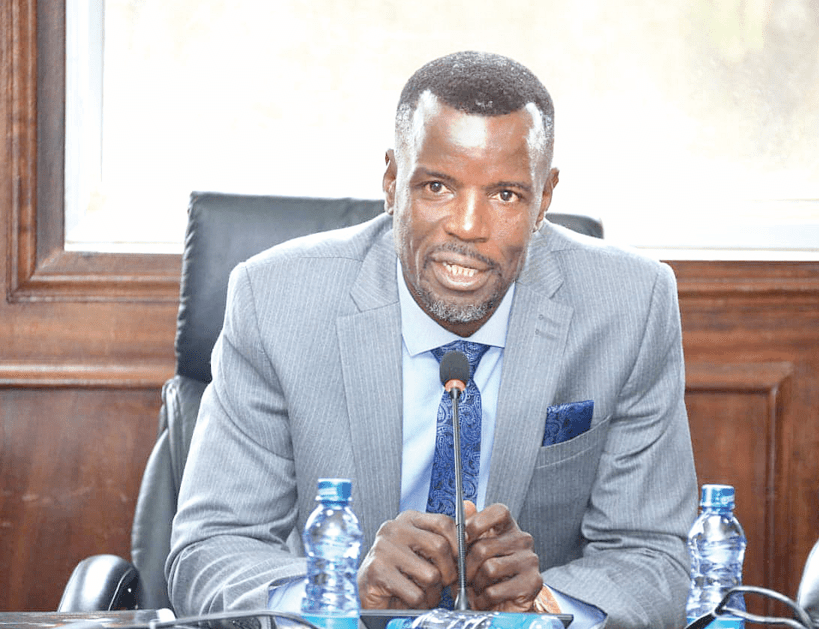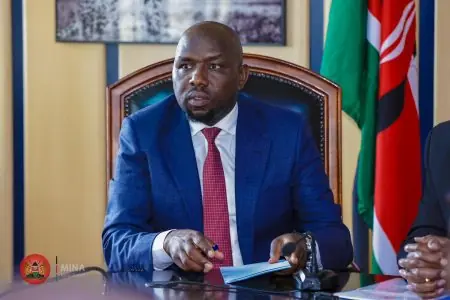Proposed police reforms to create DIG for investigations

The Directorate of Criminal Investigations (DCI) will be changed to the Criminal Investigations Service (CIS) headed by a Deputy Inspector General, whose officers will be recruited from the general public if a proposed law is passed.
According to the National Police Service (Amendment) Bill 2025, the National Police Service Commission (NPSC) will, on the recommendation of the DIG, recruit civilian members of staff from the general public with expertise in forensic science and other related disciplines into the CIS.
The officers appointed shall be restricted up to the rank of Senior Sergeant.
For purposes of transition, the DCI Director who was appointed before the enactment of this Act shall automatically be the Deputy Inspector-General of CIS.
Whenever a vacancy arises, for the rank of Inspector of Police and above, the Commission shall, on the recommendation of the DIG, recruit officers to the CIS from within the CIS.
The proposed amendments are spearheaded by the office of the Attorney General and Ministry of Interior and members are legal officers drawn from the police, NPSC, IPOA and other institutions.
The Bill also proposes that the General Service Unit (GSU) be more autonomous and the commandant report directly to the Inspector General, and not the DIG Kenya Police Service.
The GSU has already developed its Standing Orders and the IG will have express authority to deploy officers from the Unit, directly.
Currently, the GSU commandant reports to the DIG-KPS in the administration of the Unit and implementing policies and directives of the Service in relation to the KPS.
The proposal has however been opposed by the Administration Police Service (APS) who warned that it could lead to duplication of duties.
The Bill also gives powers to the Inspector General to determine the distribution and deployment of all officers in the service, and not those of the rank of Superintendent and below.
Section 10(1) of the National Police Service Act only gives power to the IG to determine the deployment of officers of the rank of Superintendent and below and others dealt with by the NPSC.
The Bill also proposes the establishment of the National Police Service Forensic Laboratory which shall be a unit within the CIS, under the control and command of the Director, who shall be of the rank of Assistant Inspector-General (AIG).
The Bill introduces Section 39C to the principal Act that defines the functions of the laboratory as a specialized forensic investigative unit responsible for providing scientific analysis and expert support to aid in criminal investigations.
It shall also be responsible for conducting forensic ballistics analysis to determine the use of firearms and ammunition in criminal activities; fingerprint and biometric analysis for purposes of identification; and toxicology and chemical analysis among others.
According to the Bill, the National Police Service Forensic Laboratory shall provide forensic services to all law enforcement and criminal justice agencies within Kenya, including the Kenya Police Service, the Administration Police Service, the National Intelligence Service (NIS), the Independent Policing Oversight Authority (IPOA) and the Ethics and Anti-Corruption Commission (EACC).
The forensic laboratory shall provide expert evidence and reports in legal proceedings as may be required by law.
It is also proposed that the Internal Affairs Unit (IAU) be more proactive by expanding by, for example, being allowed to regularly visit police facilities including cells to deal with cases of prolonged or unlawful detention, among others.
Though IAU should not investigate any matter which is the subject of proceedings before a court of law or judicial tribunal, it can be directed to do so by the same court or tribunal.
Section 49(12) of the NPS Act is amended by including IAU, besides IPOA, as one of the institutions where officers can lodge complaints with or give evidence before or provide information.
Police lock-up facilities shall also be open for inspection by the IAU. Section 11 of the Principal Act only allowed IPOA and the Cabinet Secretary or their representatives.
Section 88(3A), which states that a police officer who commits a criminal offence and is convicted shall be liable to imprisonment for a term not less than ten years and not more than twenty years, has also been deleted.
Equally, the initial proposal to increase the fine from Ksh1 million to Ksh10 million for any person who assaults or wilfully obstructs a police officer in the due execution of his or her duties has been dropped.














